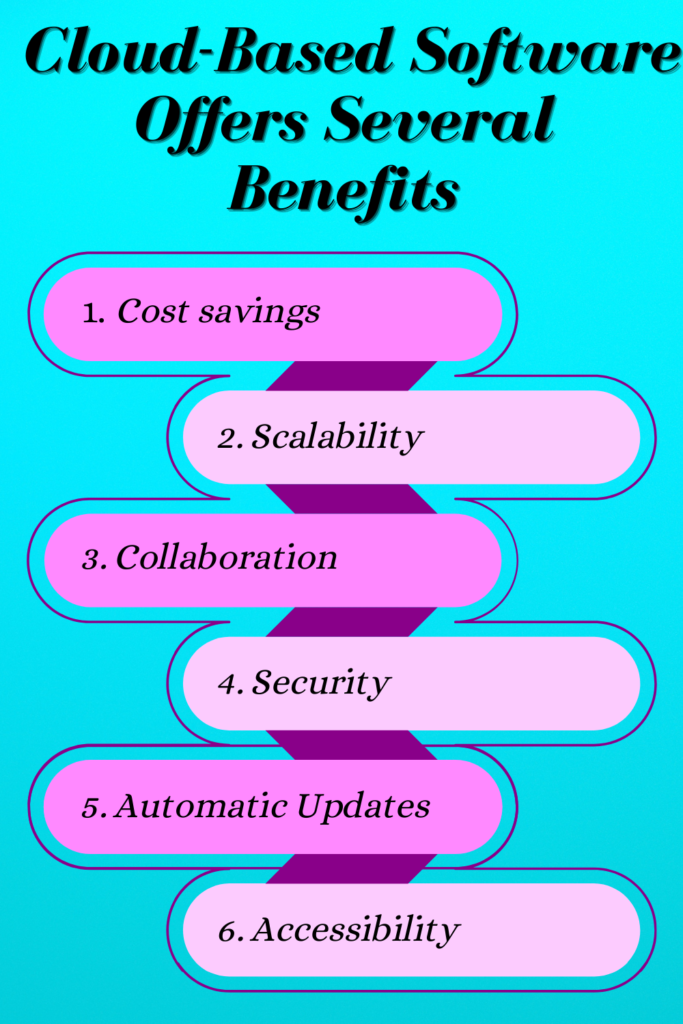The cloud-based software refers to software that is hosted and delivered via the internet rather than being installed locally. This type of software is becoming increasingly popular for businesses of all sizes, as it offers a range of benefits over traditional, locally installed software.
It is possible to access cloud-based software from anywhere with an internet connection, which is one of its main advantages. This makes it ideal for remote teams, as all team members can easily collaborate and work together regardless of their location.
Cloud-based software is also highly scalable, meaning it can easily adapt to meet the changing needs of your business. A cloud-based software application is also often more cost-effective than traditional software.
By only paying for the resources you use, you do not have to invest in expensive hardware and infrastructure. Cloud-based software is also typically updated automatically, which means you don’t have to worry about keeping your software up to date.
Overall, cloud-based software is a convenient, cost-effective, and secure solution for your IT needs.
Table of Contents
In terms of IT, cloud-based software offers several benefits:
Cost savings :
One of the main benefits of cloud-based software is the cost savings compared to traditional on-premise software. Instead of investing in hardware, infrastructure, and maintenance, cloud-based software allows you to pay only for what you use.
Scalability:
Cloud-based software is highly scalable, which means that it can easily adapt to changes in your business needs. If you need to add more users or storage, you can do so without having to purchase and install additional hardware.
Collaboration:
Cloud-based software makes it easy for teams to collaborate, as it allows multiple users to access and edit documents and files in real-time from any location with an internet connection.

Security:
Cloud-based software providers typically have advanced security measures in place to protect your data, including encryption, regular security updates, and backup and recovery services.
Automatic updates:
Cloud-based software doesn’t require you to manually install updates or patches. You are always up-to-date with the latest version of the software thanks to the provider.
Accessibility:
Cloud-based software can be accessed from any device with an internet connection, making it easy for you to work from anywhere and stay connected to your team and resources.
Overall, cloud-based software offers a range of benefits that can help businesses improve efficiency, reduce costs, and increase collaboration.
Conclusion
As a result, cloud-based software offers powerful and flexible solutions to businesses of all sizes. With its ability to be accessed from anywhere with an internet connection, its scalability, and its cost-effectiveness, it is an attractive option for companies looking to improve their IT capabilities. In addition, cloud-based software is typically more secure than traditional, locally installed software, as it is maintained by the provider and is subject to robust security measures.
Overall, cloud-based software offers numerous benefits over traditional software and is a smart choice for businesses looking to take advantage of the latest technology. If you are considering using cloud-based software for your IT needs, it is important to carefully research your options and choose a reputable provider that can meet your specific needs and requirements.



 Like
Like LOVE
LOVE Win
Win Cute
Cute LOL
LOL OMG
OMG WTF
WTF Fail
Fail


